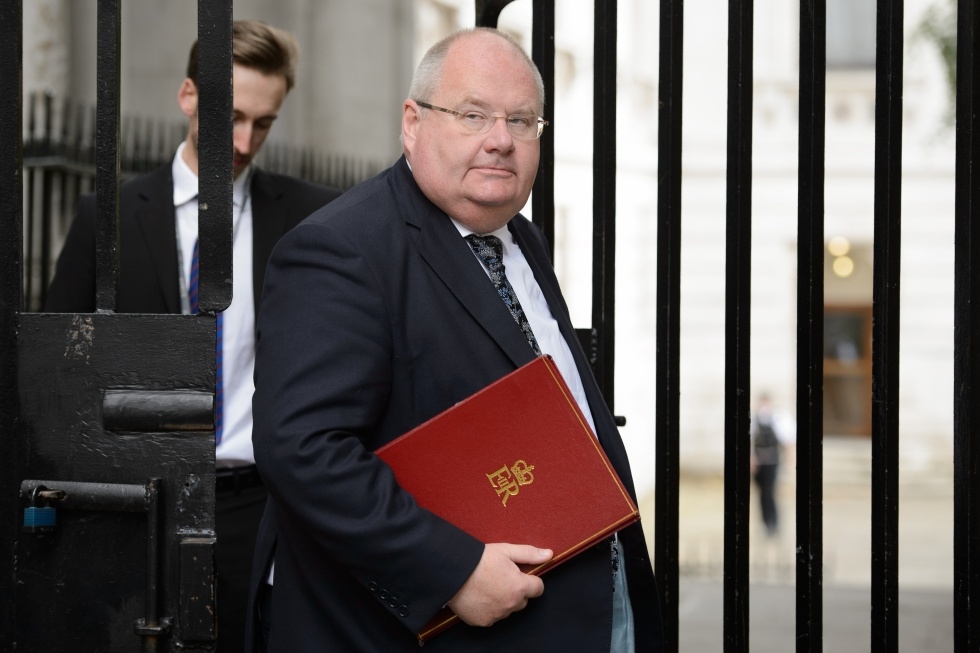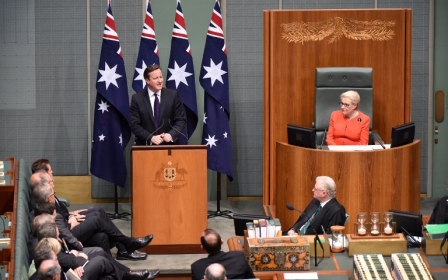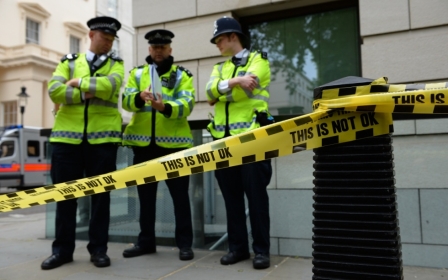You want to know what Britishness is all about? Just ask a Muslim

Prime Minister David Cameron believes that the letter written and sent to over a thousand Muslim leaders in the UK by Communities Secretary Eric Pickles this week, in response to the Paris attacks, was “reasonable, sensible and moderate”.
The letter in question asks Muslim leaders to yet again publicly condemn the attacks on Charlie Hebdo and, crucially, explain to youth what it means to be British. The latter request is fraught with confusion since the government has repeatedly failed to provide any cogent guidelines on exactly what Britishness - or extremism for that matter - means?
Would, for example, the rest of the white, non-Muslim population be happy to take lessons from Muslim leaders - some of whom cannot articulate themselves in English - on notions of Britishness simply because they nod in agreement with the government?
In fact, Britons abroad are not particularly well known for integrating with local populations, mastering their languages or practicing their customs. If the saying “an Englishman’s home is his castle” is anything to go by, it’s not much of a trait in England either. Whilst co-existing and tolerance is a British trait, assimilation certainly isn’t.
Indeed, the pub, arguably the most important British social institution, is why politicians like Nigel Farage like to be seen enjoying a pint there. Even David Cameron once infamously forgot his eight-year-old daughter in a pub while last year Anglo-French defence talks between Francois Hollande and Cameron neatly concluded with a trip down the local.
This, however, is one aspect of “Britishness” that Muslims will forever struggle with since consuming, trading in or even gathering around alcohol is not permitted in Islam. Not that pubs or bars are exclusive to Britain, but there is a sense that the British Islam Mr Pickles speaks of will always remain elusive and not really belong.
Is there a “British Islam” and would creating and embracing such a thing make British Muslims less troublesome, more tolerant, more law-abiding and more compliant?
Can mosques and Muslim community leaders in Britain possibly “do more” after every terrorist outrage, including the ones carried out by citizens of other countries in other countries? Much of that same enigmatic Muslim “community leadership” seems to be in a perpetual state of obeisance apologising for crimes they’ve not committed, in places they’ve never been, by persons they’ve never met, for causes they don’t believe in.
Whether they’re acting out of fear or, ironically, the terror of an anti-Muslim backlash - attacks against Muslims have increased all over Europe - many Muslim leaders have begun to realise that condemning and apologising (in that order) only weakens their standing amongst the most disenfranchised in their community: the youth, whilst adding little of substance to tackle the real causes of anger and resentment.
Whilst it is hard to find anyone who openly condones violence carried out on our streets - in the name of anything - there is now a cringe-worthy factor in play when we see some of our leaders falling over themselves in pursuit of the perfect apology. This even prompted a comical but instructive “apology experiment” conducted by young Muslims in which they asked ordinary British people to apologise for the crimes and faults of others, with predictable results.
Perhaps our leaders could respond with facts and statistics instead of apologies. According to Europol, the law enforcement agency of Europe, non-religious actors carried out the overwhelming majority of terrorist attacks in Europe. Muslims were responsible for only 0.7 per cent (for a religious cause). Whilst the ideal would be no terrorist attacks at all by Muslims, we cannot forget that bombing or invasion of Muslim countries by western nations have given cause to the former.
With the new Counter Terrorism and Security Bill poised to become law following the rise of Islamic State in Iraq and Syria (ISIS), in the coming days the pressure on British Muslims is about to increase. Instead of repealing some of the most draconian antiterrorism laws in the world, we’re about to acquire more. They include powers that can impose PREVENT programmes in nurseries, schools, colleges, universities and hospitals, force internal exile, remove passports, strip nationality and render suspects stateless.
In 2006, British Chancellor Gordon Brown called for a special day in Britain to celebrate national, British identity. Critics argued that such a thing would in itself be very un-British and would simply be imitating countries like France and USA who had fought bloody revolutions to get freedom while Britain had taken another path.
However, a national debate on what Britishness meant did begin in earnest. The BBC conducted a poll on what single date in history best defined a sense of Britishness. The result was surprising. The majority of respondents voted for the signing of the Magna Carta, 1215, exactly 800 years ago, even topping Victory in Europe Day (VE Day).
One of the rights derived from Magna Carta culminated in the famous legal writ of habeas corpus that exists to this day and can be found in the legal constitutions of nations once colonised by the British Empire. Chapter 39 notes:
“No free man shall be taken or imprisoned, or dispossessed or outlawed or exiled or in any way ruined, nor will we go or send against him except by the lawful judgment of his peers or by the law of the land.”
Considering Britain has been found repeatedly complicit in the rendition (abduction, false imprisonment without trial and torture) of Muslim prisoners there could be no starker irony. Still, it is this notion of justice that all people in Britain can safely gather around, even if it is eroded as we speak.
We are in dangerous times. One glance at the history of Jews in Europe will show us how they were targeted because of differences. Their women donned head-coverings, the men wore long beards and clothing; they spoke Yiddish, they ate kosher food, they had separate schools; they celebrated separate holidays and festivals, prayed in separate synagogues and were buried in their own graveyards. The Nazis and their allies all over Europe, caricatured Jews in the most insulting and degrading way. After dehumanising them sufficiently the pogroms followed, and then the Final Solution.
We aren’t anywhere near this point again and I pray we never get there. Anxiety amongst British (and European) Jews is at a record high. With thousands marching in the streets of Germany led by people who impersonate and idolise Hitler, I can see why. But this time it’s the Muslims they’re marching against.
In the midst of all the hatred and calls for revenge, the voices of reason and sanity cannot afford to be drowned out. But telling us to “do more” when governments refuse to accept their own role in creating enmity - whether through disastrous bombing campaigns in the Middle East or drafting legislation that de facto only applies to its Muslim minority - is anything but reasonable, sensible or moderate.
- Moazzam Begg is a former Guantanamo Bay detainee and currently the director of outreach for UK-based campaigning organisation CAGE.
The views expressed in this article belong to the author and do not necessarily reflect the editorial policy of Middle East Eye.
Photo: British Communities and Local Government Secretary Eric Pickles arrives in Downing Street, central London, on 20 August 2014 (AFP)
Middle East Eye propose une couverture et une analyse indépendantes et incomparables du Moyen-Orient, de l’Afrique du Nord et d’autres régions du monde. Pour en savoir plus sur la reprise de ce contenu et les frais qui s’appliquent, veuillez remplir ce formulaire [en anglais]. Pour en savoir plus sur MEE, cliquez ici [en anglais].





